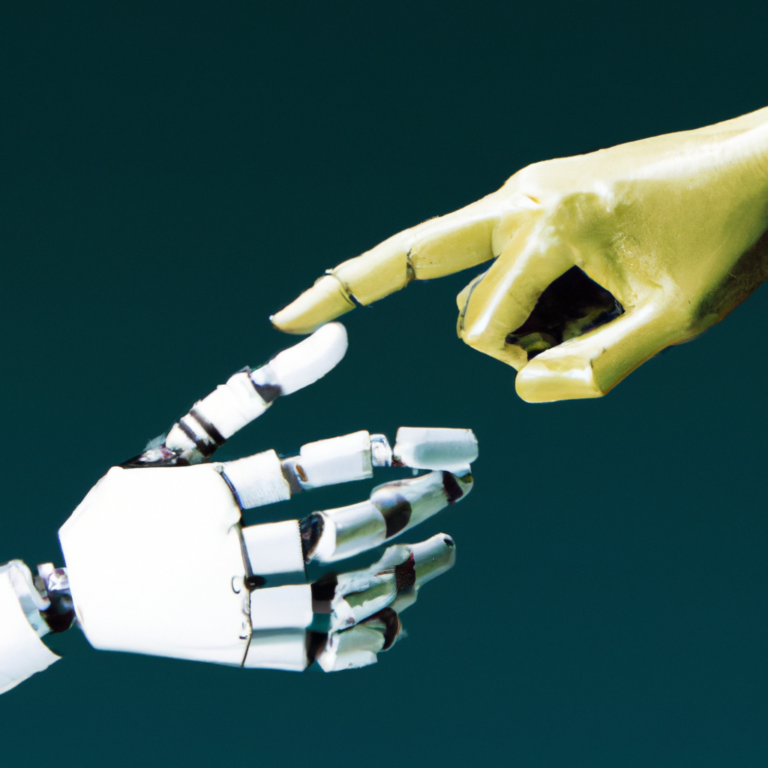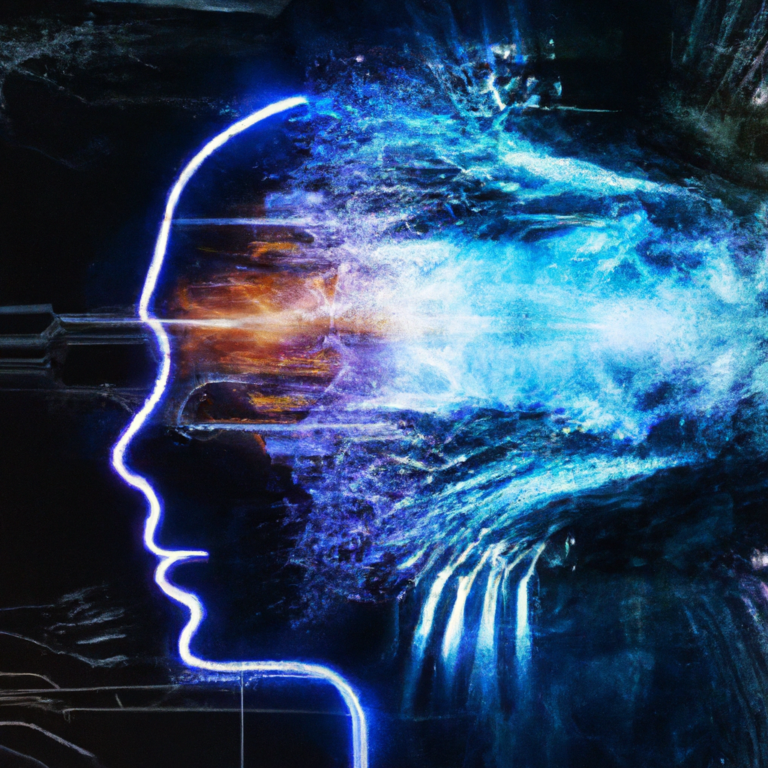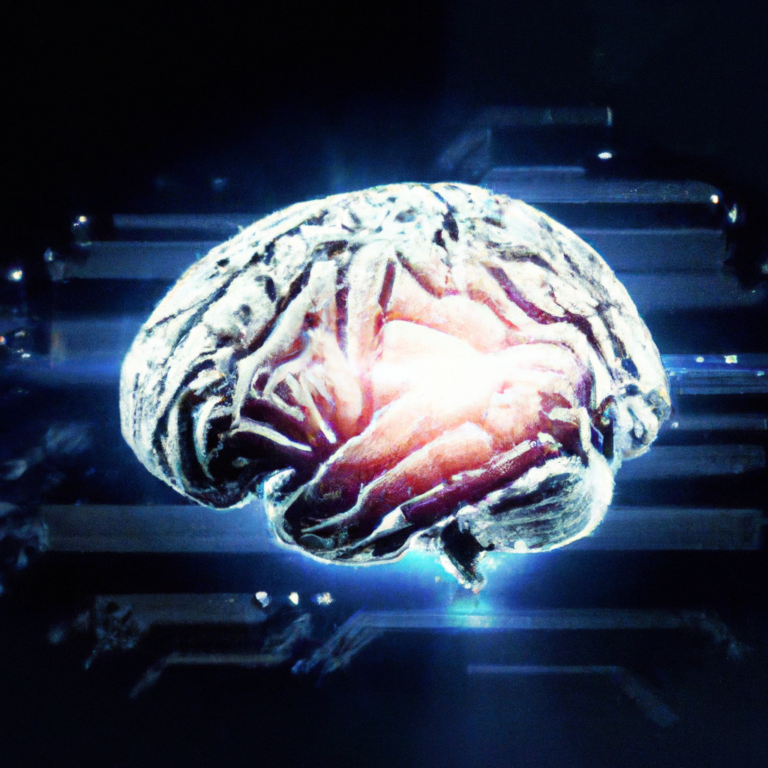AI And The Future Of Work: How Will AI Change The Way We Work In The Future?
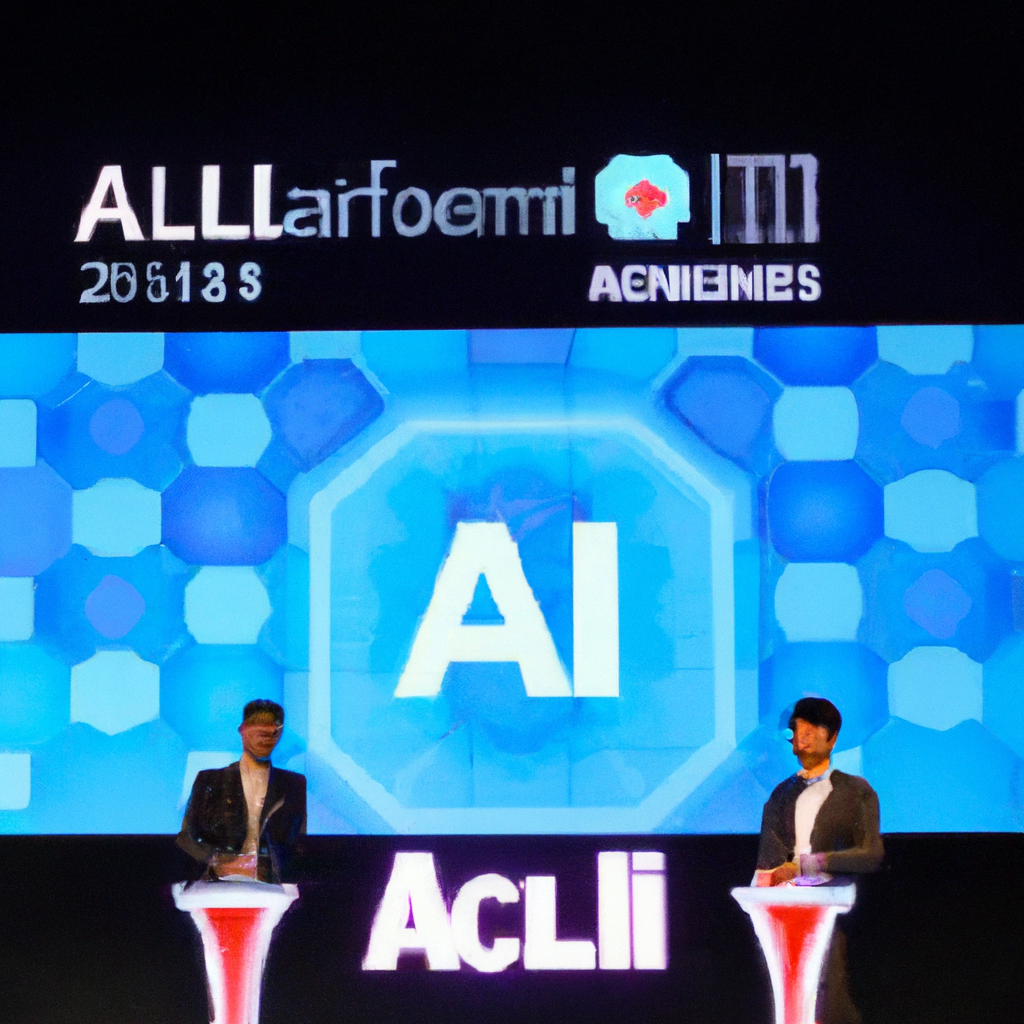
In this article, we explore the fascinating realm of AI and how it will revolutionize the future of work. We delve into the potential impact of AI on various industries, from healthcare to finance, and discuss the opportunities and challenges it presents. With AI on the rise, it’s time to discover how this transformative technology will reshape the way we work and pave the way for innovative solutions and a more efficient future. So, fasten your seatbelts and get ready to embark on a journey into the exciting world of AI and its transformative effects on the future of work.
Overview of AI
Definition of AI
Artificial Intelligence (AI) refers to the development and application of computer systems that are capable of performing tasks that would typically require human intelligence. These systems are designed to analyze, interpret, and process vast amounts of data to identify patterns, make predictions, and make decisions.
Types of AI
There are various types of AI, ranging from narrow or weak AI, which is designed to perform specific tasks, to general or strong AI, which has the ability to understand, learn, and perform any intellectual task that a human being can do. Machine learning, a subset of AI, focuses on training systems to learn from data and improve their performance over time.
Applications of AI
AI has a wide range of applications across various industries and sectors. For instance, in healthcare, AI algorithms can analyze medical records, assist in diagnosing diseases, and personalize treatment plans. In finance, AI is used for fraud detection, risk assessment, and algorithmic trading. Other areas where AI is making significant contributions include transportation, retail, manufacturing, and customer service.
Current Impact of AI on Work
Automation of Repetitive Tasks
One of the immediate effects of AI on work is the automation of repetitive and mundane tasks. Machines equipped with AI can perform these tasks faster, more accurately, and tirelessly compared to humans. This automation frees up human workers from monotonous work and allows them to focus on more complex and creative tasks that require critical thinking and problem-solving skills.
Improved Efficiency and Productivity
AI has the potential to significantly enhance efficiency and productivity in the workplace. By automating routine tasks, AI systems can streamline processes, reduce errors, and speed up production. For example, in manufacturing, AI-powered robots can carry out assembly line tasks with precision and speed, resulting in higher output and reduced costs.
Enhanced Decision-Making and Problem-Solving
Another area where AI is impacting work is in decision-making and problem-solving. AI systems can process and analyze vast amounts of data, identify patterns, and generate insights that can aid in informed decision-making. For instance, in the financial sector, AI algorithms can analyze market trends, customer behavior, and risk factors to assist investors in making smarter investment decisions.
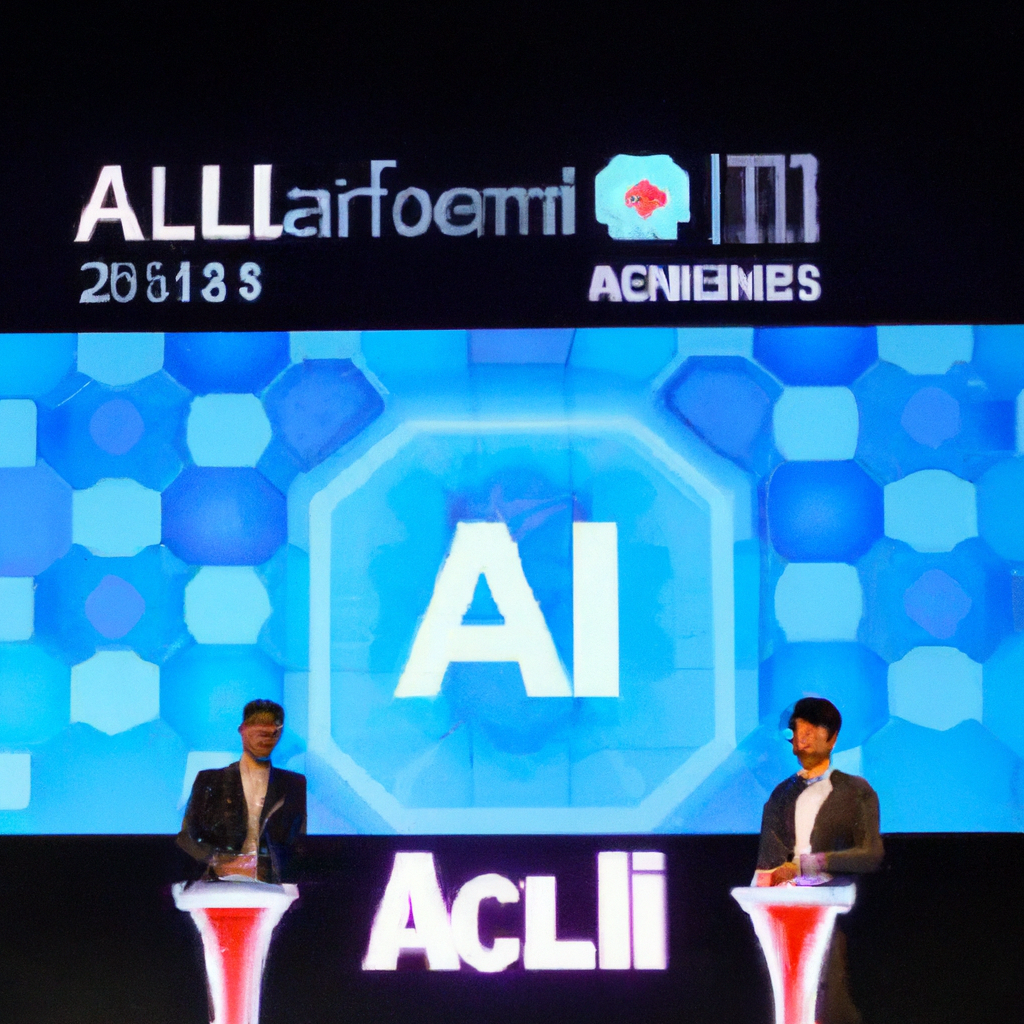
Potential Disruptions in the Future
Job Displacement and Transformation
The widespread adoption of AI is likely to lead to job displacement and transformation across various industries. Tasks that can be automated may no longer require human intervention, resulting in job losses. However, it is important to note that AI also creates new job opportunities, requiring individuals to develop new skills and adapt to changing work environments.
Skills and Education Challenges
The advancement of AI will require individuals to acquire new skills to remain relevant in the workforce. Jobs that involve repetitive or manual tasks will be increasingly automated, necessitating a shift towards skills that are difficult to automate, such as critical thinking, problem-solving, and creativity. This poses challenges in terms of the education and training needed to equip individuals with these skills.
Impact on Income Inequality
The integration of AI into the workforce has the potential to exacerbate income inequality. While AI has the capability to enhance productivity and efficiency, those who are unable to acquire the necessary skills to adapt to the changing job market may face unemployment or lower wages. Efforts must be made to ensure that the benefits of AI are distributed equitably and that measures are taken to address income disparities.
New Opportunities and Roles
Emerging Job Sectors and Skill Demands
The rise of AI opens up new job sectors and creates demand for skills that complement AI technologies. Jobs such as data scientists, AI engineers, and machine learning specialists are becoming increasingly important in various industries. Additionally, there is a growing need for individuals who can effectively collaborate with AI systems and leverage their capabilities to drive innovation and productivity.
Collaboration between Humans and AI
Rather than replacing humans entirely, AI has the potential to enhance human capabilities and facilitate collaboration between humans and machines. This partnership can lead to improved outcomes and innovation. For example, in healthcare, AI can assist doctors in diagnosing diseases by analyzing medical images, while human physicians can provide the necessary contextual knowledge and make treatment decisions based on the AI-generated insights.
Entrepreneurial Opportunities
The rise of AI also presents entrepreneurial opportunities for individuals and organizations. New companies can emerge to develop and implement AI technologies, while existing companies can explore innovative AI-driven business models. Entrepreneurs who are able to identify the potential applications of AI and address various industries’ pain points have the opportunity to revolutionize the way we work and live.

Workplace Changes and Adaptation
Redefined Job Roles and Task Allocation
As AI systems increasingly take over routine tasks, job roles are being redefined. Certain tasks may no longer require dedicated human involvement, while new roles that focus on managing and interacting with AI systems may be created. Companies will need to reassess job descriptions and allocate tasks effectively to leverage the capabilities of both humans and AI.
Reimagining Work-Life Balance
The integration of AI into the workplace has the potential to reshape the concept of work-life balance. By automating repetitive tasks and improving efficiency, AI can potentially reduce the time and effort required for certain job responsibilities. This may allow individuals to have more control over their work schedules, spend more time on meaningful tasks, and achieve a better balance between work and personal life.
Reskilling and Upskilling Initiatives
To adapt to the changing nature of work, reskilling and upskilling initiatives will be essential. Individuals will need to continuously update their skills to meet the demands of AI-driven workplaces. Employers, educational institutions, and governments should collaborate to provide training programs and resources that enable individuals to acquire the necessary skills and stay competitive in the job market.
Ethical Considerations
Bias and Fairness in AI Algorithms
One of the key ethical considerations in AI is the potential for bias and unfairness in AI algorithms. AI systems are trained on historical data, which may contain biases or reflect societal inequalities. If not properly addressed, these biases can perpetuate discrimination and injustice. It is crucial to ensure that AI algorithms are fair, transparent, and free from biases to promote equality and inclusivity.
Privacy and Data Protection Concerns
AI technologies rely on vast amounts of data to operate effectively. This raises concerns regarding privacy and data protection. As AI systems process and analyze personal data, there is a need for robust regulations and privacy frameworks to safeguard individuals’ information. Data collection, storage, and usage should be transparent, and individuals should have the right to control and access their own data.
Ethical Decision-Making by AI Systems
AI systems are increasingly being tasked with making autonomous decisions that impact human lives. Ethical considerations become crucial in ensuring that AI systems make informed and responsible decisions. Developing frameworks and guidelines for ethical AI design, including principles such as transparency, accountability, and the ability to explain the reasoning behind AI decisions, is vital to prevent potential harm and ensure the ethical use of AI.
AI and Human Collaboration
Augmented Intelligence
The concept of augmented intelligence emphasizes the collaboration between humans and AI systems to augment human capabilities and intelligence. Rather than replacing humans, AI is seen as a tool to enhance human potential. By leveraging AI technologies, humans can access and process vast amounts of information, make data-driven decisions, and solve complex problems more efficiently and effectively.
Human-Centered AI Design
To ensure successful collaboration between humans and AI, it is essential to prioritize human-centered AI design. The development of AI systems should consider human values, needs, and preferences. User-friendly interfaces, explainable AI algorithms, and ethical use of AI are crucial elements in designing AI systems that are intuitive, understandable, and aligned with human goals.
The Role of Empathy and Emotional Intelligence
While AI systems excel in processing data and providing logical solutions, they lack human qualities such as empathy and emotional intelligence. These human attributes play a vital role in various professions that involve interpersonal interactions, such as healthcare and customer service. As AI becomes more integrated into the workforce, the importance of these uniquely human skills will continue to grow, highlighting the value of human expertise and emotional connection.
Preparing for the AI-Driven Future
Education and Skills Development
To prepare for an AI-driven future, a strong focus on education and skills development is vital. Educational institutions must adapt their curricula to incorporate AI literacy, data analysis, critical thinking, and problem-solving skills. Lifelong learning initiatives should be promoted to ensure that individuals are equipped with the necessary skills to thrive in an AI-driven workplace.
Policy and Regulation Frameworks
To ensure the responsible and ethical use of AI, policy and regulation frameworks need to be established. Governments and regulatory bodies should collaborate with industry experts to develop guidelines and standards for AI deployment, addressing concerns such as transparency, accountability, and privacy. Clear regulations will foster trust in AI technologies and help mitigate potential risks associated with their adoption.
Promoting Diversity and Inclusion
As AI technologies become more prevalent, it is crucial to promote diversity and inclusion in their development and application. The lack of diversity in teams that design and develop AI systems can result in inherent biases and exclusionary outcomes. Embracing diverse perspectives and ensuring inclusive practices can help prevent the perpetuation of inequalities and enable the development of AI technologies that serve the needs of diverse populations.
The Future Outlook
AI-Driven Economic Growth
The integration of AI into various industries has the potential to drive significant economic growth. AI technologies can enhance productivity, efficiency, and innovation, leading to increased output and improved competitiveness. As AI continues to evolve and mature, it is expected to create new opportunities, stimulate job creation, and contribute to economic prosperity.
Redefinition of Work and Careers
The rise of AI will inevitably redefine the nature of work and careers. Some existing job roles may become obsolete, while new roles that are driven by AI technologies will emerge. The ability to adapt, acquire new skills, and embrace lifelong learning will be essential in navigating the changing job landscape. Flexibility, adaptability, and a growth mindset will become increasingly crucial for individuals to remain competitive.
Benefits and Challenges of AI in the Future
While AI offers numerous benefits, there are also challenges that need to be addressed. AI-powered automation can improve productivity and efficiency, but it may also lead to job displacement and income inequality. Striking the right balance between leveraging AI technologies and ensuring equitable outcomes will be crucial. Additionally, concerns around privacy, bias, and ethical decision-making will need to be continuously addressed as AI becomes more integrated into various aspects of our lives and work.
Conclusion
The integration of AI into various work domains is fundamentally changing the way we work, presenting both opportunities and challenges. As AI automates repetitive tasks, improves efficiency, and enhances decision-making, humans have the opportunity to focus on more complex and creative work. However, this also requires individuals and organizations to adapt, reskill, and embrace change. As AI evolves, it is essential to maintain a human-centric approach to work, ensuring that AI technologies are designed and deployed ethically, with a focus on promoting diversity, inclusion, and the well-being of individuals. By embracing the potential of AI while prioritizing human skills and values, we can navigate the AI-driven future with confidence and create a future of work that is both technologically advanced and inherently human.
Want to write articles like us? Get your copy of AI WiseMind here!


